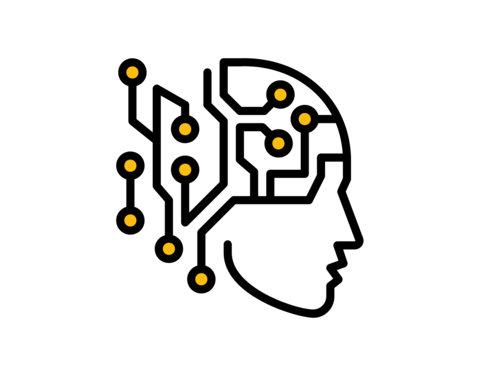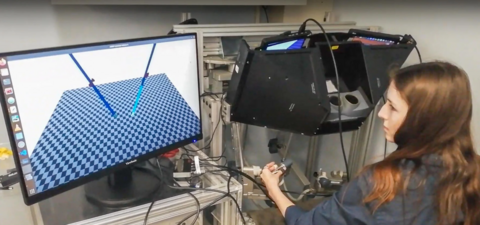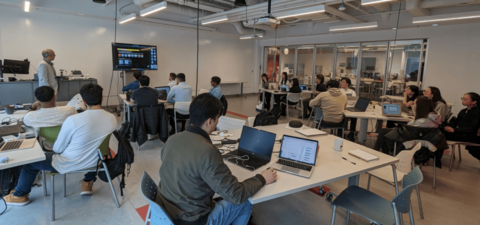Since launching in 2018, Waterloo.AI’s multi-disciplinary research teams have been collaborating with industry to develop intelligent systems in areas such as disease detection and treatment, understanding language and emotion, and vehicle navigation.
Our projects are building tomorrow’s intelligent systems today, by translating industry requirements into deployable, real-time embedded AI. In years to come, we expect this investment to yield profound dividends for the economic prosperity and quality of life of people all around the world. And we are just getting started.
What is Artificial Intelligence?
Artificial Intelligence (AI) is the study of machines and software that exhibit intelligence, such as learning, reasoning, planning, problem-solving, predicting, and the use of language and vision. With the advent of big data, and driven by the explosion of computing capacity and speed, AI tools are being increasingly integrated into technological solutions that are central to our everyday life, business, society, and the environment.

Why Should You Care About Data?
Waterloo.AI's Co-Director - Jimmy Lin, explains the importance of data in this episode of the "Back to the Classroom" video series.


News
Waterloo tech talent is powering Skinopathy’s AI revolution in skin cancer screening
Co-op students help build AI technology that’s revolutionizing the future of dermatology.
At the intersection of health, society and technology
With the support of the Lupina Foundation, postdoctoral scholars in Arts are improving healthcare.
Shaping AI: Why the humanities matter in tech innovation
Doctoral candidate considers how the humanities' rich tradition of storytelling and character exploration can be harnessed to shape the future of AI
Events
Generative AI in K-12 Education Workshop
Generative AI Workshop hosted by: Waterloo.AI and SJK School
Date: Monday, Nov. 4th, 2024
Location: SJK School












